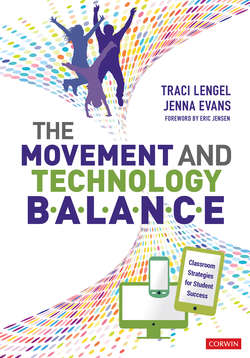Читать книгу The Movement and Technology Balance - Traci Lengel - Страница 18
На сайте Литреса книга снята с продажи.
The Digital Age A Past Perception
ОглавлениеThe digital age is commonly known as the information age; it is a period in human history characterized by a shift from traditional industry to an economy based on information technology. This era is associated with the Digital Revolution, recognized as a time when industry creates a knowledge-based society encircled by a high-tech global economy. As technology was introduced into our society, many of us did not predict its potential power and immense capabilities. During their arrival, devices had one function. We wrote papers, played video games, listened to music, and used cell phones in conjunction with our traditional means of communication and supplementary enjoyments. Technology lived alongside our customary lifestyles and moved parallel with our behaviors, habits, and simple ways of life. Progress was steady but largely linear, which made life still feel uncomplicated at the time. As we slowly evolved into the predigital age, products became digitized, photos became bits, and knowledge moved to Wikipedia. This was only the beginning of a conversion that would eventually consume our existence.
Can you recall the onset of the digital age and the first technological device you used or owned? How did it simplify or complicate your life? How did it change your teaching or learning? Computers and laptops have had a direct impact on education. Typing and editing became a breeze once you mastered the keyboard and all its functions. Research and information gathering was also faster and more accessible. Some schools had the initial funding to make immediate purchases, where others lagged behind. However, everyone was headed toward acquiring as much technology as the budgets would allow. Comparable to societal reactions and responses to the increase in technology, the initial impact in schools was also slow and steady. This allowed for minimal changes in the day-to-day teaching and learning process. Technology was viewed as a positive contribution to education and its practices.
